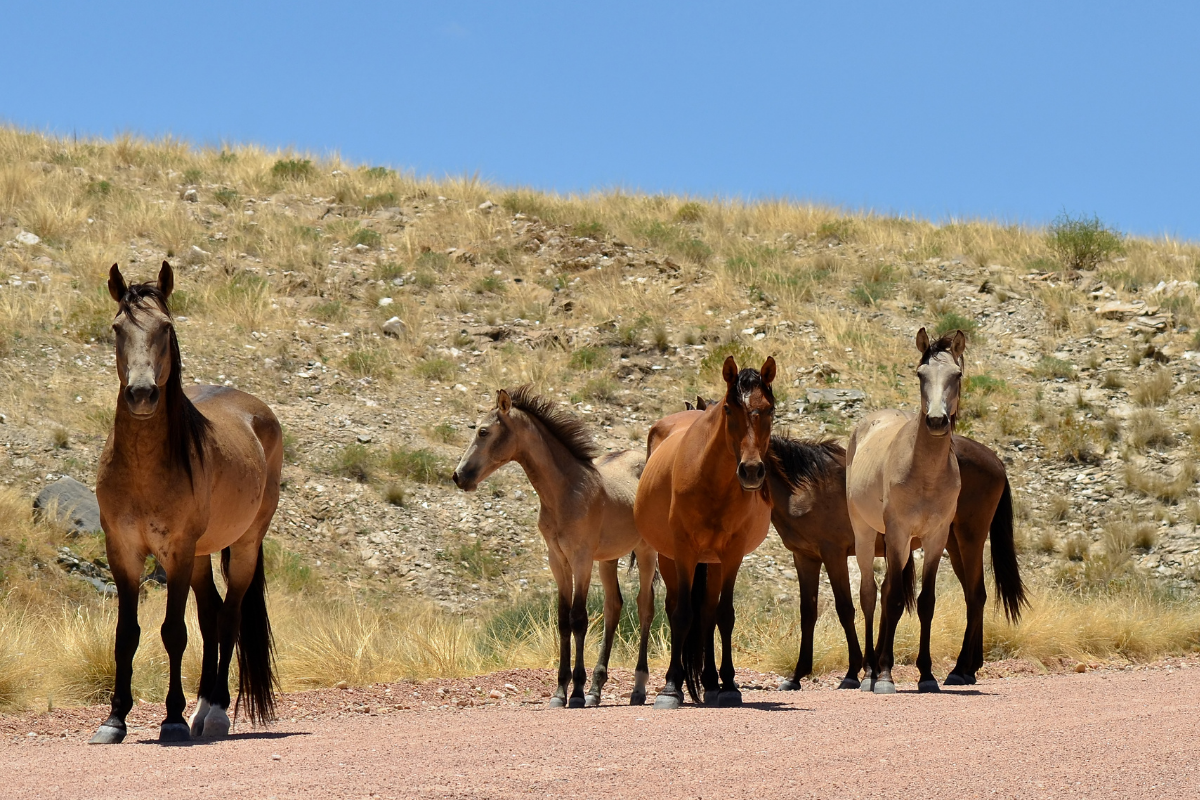The Bureau of Land Management just announced its plan to rip an additional 19,000 wild horses and burros from their families and home on the range and forcibly drug at least 2,300 wild horses with fertility control and release them back on to public lands through the end of September. Despite it being a new year and having new leadership, it’s business as usual for the meat-industry loving rogue agency. If BLM achieves its goal, this would be the largest number of mares it would prevent from reproducing and the largest number of animals ever removed in one year.
“It didn’t take long for Tracy Stone-Manning to sell-out America’s wild horses,” said Priscilla Feral, president of Friends of Animals. “As ranchers flood federal public lands—our lands—with millions of cattle and sheep destined for slaughterhouses, she says that BLM’s terrifying roundups, handling standards and fertility control work are guided by compassion for wild horses and a desire to protect their well-being, as well as the health of our public lands. Her definition of compassion is a travesty as is the fact she never mentions livestock grazing. In truth, BLM is co-opted by the bloody meat industry and its measly grazing fees. It’s an abomination.”
According to BLM, there are approximately 79,568 wild horses residing in herd management areas. In those HMAs, there are roughly 669 grazing allotments partially or entirely in those boundaries, which house more than 4 million livestock, yet BLM has set meager and scientifically unproven numbers—appropriate management levels—for how many of America’s beloved wild horses can exist in balance with other rangeland species and resources.
Friends of Animals recently submitted a rulemaking petition to Stone-Manning to halt wild horse roundups and convene an independent panel of scientists to take a rigorous look at the massive presence of cattle and sheep grazing withing herd management areas as a significant cause of range degradation. FoA wants the BLM to include the impact of cattle and sheep ranching on public land range assessments and immediately reduce the number of cattle and sheep within HMAs when any wild horse management is planned because of range deterioration, followed by a phaseout of all livestock as grazing permits expire.
“It’s disturbing that BLM attempts to disguise its wild horse extinction plan as an effort to save wild horses so it can avoid public backlash,” said Jennifer Best, director of Friends of Animals Wildlife Law Program. “As usual, the agency ignores the truth – that wild horses are not overpopulated and it has commodified our public lands for the economic benefit of a few in the meat industry, contributing to the climate crisis and the degradation of our public lands. If BLM truly had the best interest of wild horses and other wildlife in mind it would leave them alone. Studies continue to pile up showing that horses and burros can help the ecosystem during periods of drought. It is time for BLM to get its head out of the sand.”
If implemented, FoA’s proposal would restore protections intended by Congress, and would likely dramatically reduce, if not end, wild horse roundups. That means herds are kept intact, respected and cherished. If the BLM denies the petition, FoA will likely take the agency to court.
FoA is also fighting the state of Utah’s brazen anti-wild horse position. The state recently filed a motion to intervene in a lawsuit FoA filed against the BLM challenging four of the agency’s 10-year management plans that authorize fertility control and ongoing, multiple roundups of wild horses from six herd management areas, including Utah’s Muddy Creek and Onaqui Mountain HMAs. The hearing on Utah’s motion is Jan. 7.
FoA is opposed to fertility control because information is now available regarding the unintended—and previously undisclosed—side effects of it on both targeted mares and wild horses in general. It not only shows unreasonable adverse effects, but also indicates the use of PZP on wild horses likely violates the Wild Horse and Burro Act of 1971.
Friends of Animals has become the leading national wild horse protection organization. You can read more about our court victories for wild horses and our ongoing litigation here.

